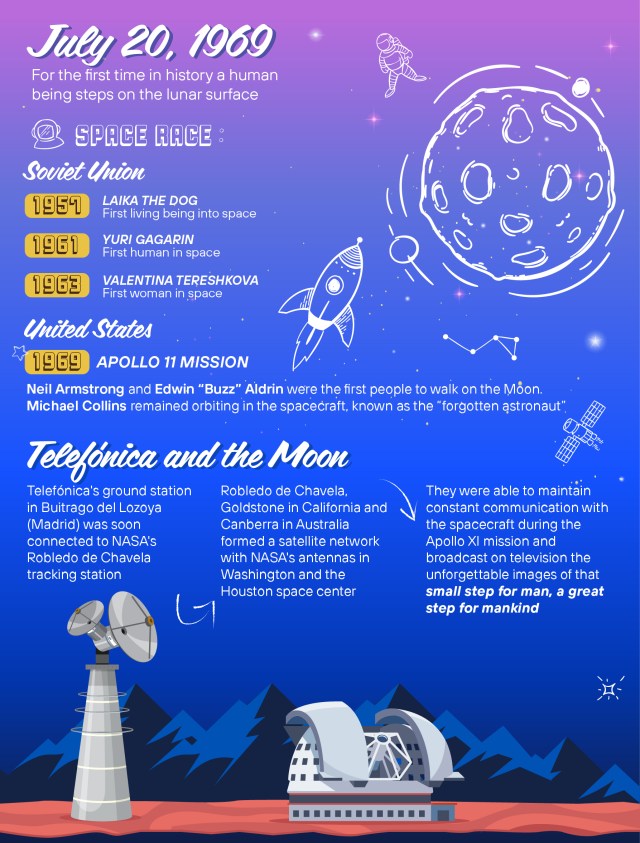International Moon Day: origin
International Moon Day is one of the most recent of all those commemorated by the United Nations, having originated in 2021.
That this day is celebrated on 20 July has a rather simple and obvious reason: on this day in 1969, for the first time in history, a human being set foot on the surface of the moon.
In establishing the day, the UN explained that it “aims to commemorate the anniversary of the first human landing on the Moon as part of the Apollo 11 mission, as well as to celebrate the achievements of all States in exploring the Moon and to raise public awareness of the exploration and sustainable use of the Moon”.

Arrival on the Moon: 20 July 1969
Mankind’s arrival on the only natural satellite available to the planet Earth took place, as mentioned above, on 20 July 1969.
On that day, two of the Apollo 11 crew members, Neil Armstrong and Edwin “Buzz” Aldrin were, in that order, the first people to walk on the Moon. The third of the crew, Michael Collins, remained in orbit in the spacecraft, which is why he has even gone down in history as the “forgotten astronaut”.
And if there is any idea or image that evokes the moon landing, it would undoubtedly be Armstrong’s phrase (“One small step for man, one giant leap for mankind”) or Aldrin’s footprint stamped on the lunar surface.
This NASA mission was a turning point in the struggle between the United States and the Soviet Union in the space race, since the Eurasian country had already achieved numerous milestones such as the launch of the first living being into space (the dog Laika in 1957), the first human in space (Yuri Gagarin in 1961), the first woman in space (Valentina Tereshkova, in 1963) or the first space walk (led by Aleksei Leonov in 1965).
But was it 20 or 21 July?
Although International Moon Day is commemorated on 20 July, it is not uncommon to see references to the moon’s arrival on the following day, 21 July.
Although the moon landing took place on the 20th, Armstrong’s descent to the moon took place at 2:56 UTC (3:56 in Spain) on the 21st, although in certain time zones it was still the 20th.
What is the relationship between Telefónica and the Moon?
This year, 2024, Telefónica is celebrating its Centenary, a period of time full of iconic moments that in many cases not only belong to the company’s memory but are intimately related to Spain’s own recent history.
One of these moments is undoubtedly the arrival of mankind on the moon, one of the most relevant and recognised events in 20th century world history.
As stated on our centenary website, “Telefónica’s ground station in Buitrago del Lozoya (Madrid) was soon connected to the NASA tracking station in Robledo de Chavela (also in Madrid, near El Escorial). This NASA “branch” in Spain was one of 20 worldwide, but as fate would have it, during the Apollo XI mission in the summer of 69, only three of them – Robledo de Chavela, Goldstone in California and Canberra in Australia – were able to maintain constant communication with the spacecraft despite the Earth’s movement. All three formed a satellite network with NASA’s antennas in Washington and from there with the space centre in Houston.
Although some technical setbacks had to be overcome, in the end Telefónica’s engineers, as well as the American teams, managed to make the optimum connections to facilitate the mission, also allowing the unforgettable images of that small step for a man to be broadcast on television…
Thus, this is one of the great events of the centenary company, not only in the 1960s, but in the whole of its hundred years of life.








